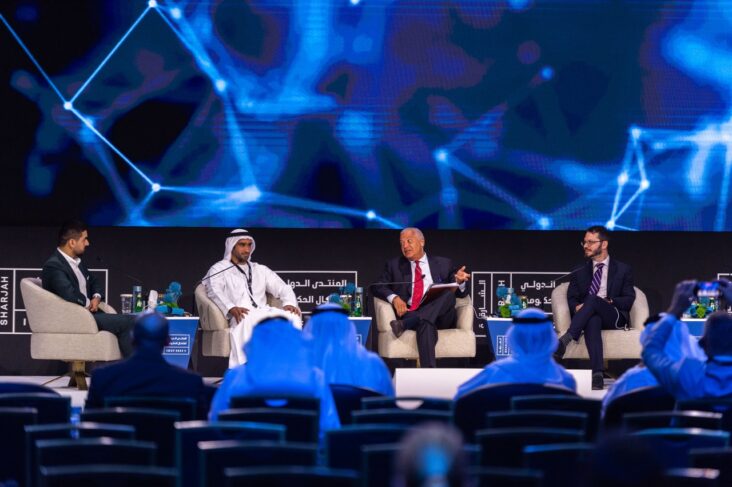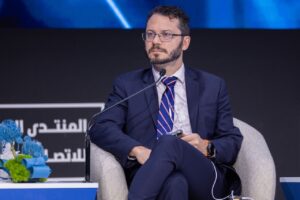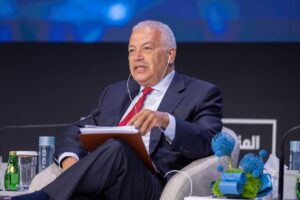Economists, Global Experts Underscore The Importance Of Economic Resilience And Communication In Crises

The 13th edition of the International Government Communication Forum (IGCF 2024), themed “Agile Governments… Innovative Communication,” commenced on Wednesday at the Expo Centre Sharjah and featured a compelling panel discussion titled “From the Core of a Resilient Economy to Communication Arts.”
Covering the salient topic of economic resilience, a concept that has gained importance in recent years as governments worldwide strive to enhance their economies’ capacity to withstand, adapt to, and recover from various challenges, the discussion highlighted how media and communication practices are being leveraged as powerful tools to support economic pliability and sustainable growth.
In partnership with Sharjah Chamber of Commerce and Industry (SCCI) the session featured a distinguished panel including H.E. Ambassador Marco A. Suazo, Head of United Nations Institute for Training and Research (UNITAR) New York office; H.E. Mohammed Al Musharrakh, Executive Director of the Sharjah FDI Office (Invest in Sharjah); Dr. David Lallemant, Associate Professor and head of the Disaster Analytics for Society Lab (DASL) at Nanyang Technological University (NTU); and was moderated by Eisa Almarzooqi, popular news presenter from Sky News Arabia.
Government communication and public trust
H.E. Ambassador Marco A. Suazo underscored the importance of communication in government functions. “Communication is a very important aspect regarding a well-functioning nation. Government is essentially a service provider for its people, it needs to interact with all segments of society.” Suazo emphasised that officials must communicate efficiently, properly, and honestly, highlighting that “public trust and confidence lead to social cohesion. If people trust their governments, communication can be issued and acted on in a timely manner.”
Suazo also discussed the role of the United Nations in promoting communication and unity among nations. “The United Nations is often seen as a third party, but ultimately we are a united organisation that should in practice act in a way that is beneficial for all nations. Communication again is essential in this process; we cannot be united without communication,” he explained.
Effective communication through technology
H.E. Mohammed Al Musharrakh provided valuable insights about the intersection of communication and technology. “We believe that our role in promoting investment in Sharjah works hand-in-hand with effective communication. With the advent of new technology, I believe that reaching larger categories of investors is easier than ever,” he stressed.
Al Musharrakh also highlighted the lessons learned from the recent pandemic, pointing out, “Economic resilience is extremely important and ensuring that we can always communicate our messaging at any time and in many ways.” He listed several new policies being implemented to increase investor confidence, such as allowing foreign companies to own 100% of their businesses within free zones and the introduction of the Golden Visa, which serve as major incentives for investors.
“Success stories are one of the best forms of promotion and most convincing forms of communication,” Al Musharrakh added. “Through the many success stories Sharjah has enjoyed across various sectors, and the success of those who invest in our emirate, we continue to make an even bigger impression on the global level.”
Crisis communication and resilience
Discussing the essential role of communication in challenging times, Dr. David Lallemant said, “The importance of communication in a crisis is not new, but technology has enabled us to get a message out extremely quickly and effectively.” Lallemant cited the example of the Haiti earthquake reconstruction efforts, where truthful communication and public trust were essential. “If the public loses trust with its government, it can open up vulnerabilities that can be exploited,” he warned.
Lallemant defined resilience as “the ability of systems to recover from shock,” which can be achieved by either reducing the impact of events or ensuring faster recovery. “One thing every crisis does is highlight vulnerabilities, without vulnerabilities there is no risk management. Vulnerabilities can present themselves as an opportunity to adapt and progress in a way that can often supersede conditions before said challenges,” he explained.
Organised by the Sharjah Government Media Bureau (SGMB), IGCF is building upon its global reputation by bringing together a diverse array of senior officials, industry leaders, decision-makers, researchers and communication experts from around the world to explore the future of government communication.



